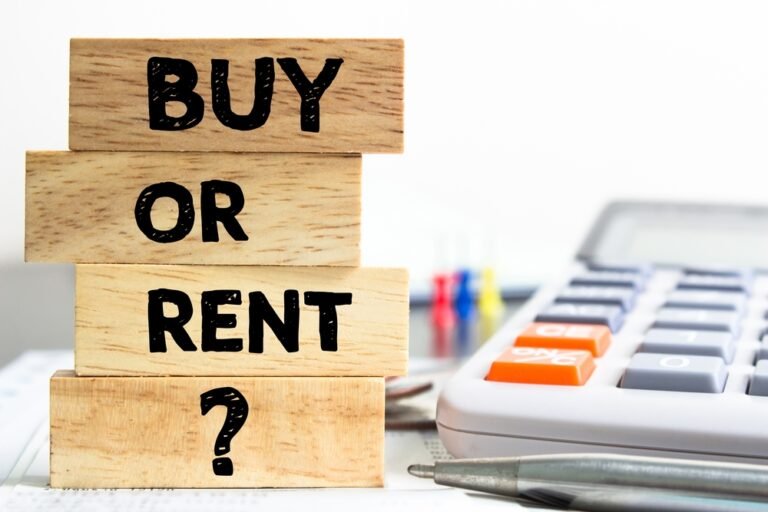Total Free Customer Care
Live Support?
When choosing whether or not it’s better to rent or own, it’s essential to consider various economic, personal, and market variables. This choice impacts your way of life, monetary health, and lasting goals. This article discovers the pros and cons of both leasing and purchasing a house, local distinctions in costs, and consists of a rent vs. buying calculator to assist your choice.

Flexibility: Renting allows you to relocate quickly for job opportunities, lifestyle changes, or personal reasons without the burden of selling a property.
Lower Initial Costs: Renting typically requires a security deposit and first month’s rent, which is significantly lower than the down payment for purchasing a home.
Maintenance-Free Living: Landlords are responsible for major repairs and maintenance, reducing unexpected expenses for renters.
Access to Amenities: Many rental properties offer amenities such as pools, fitness centers, and concierge services without additional cost.
Lower Financial Risk: Renters are not subject to fluctuations in home values or interest rates, making financial planning more predictable.
No Property Taxes: Property taxes can be a significant cost for homeowners, but renters are not responsible for them.
No Equity Building: Rent payments do not contribute to ownership or investment in an asset.
Rent Increases: Landlords can increase rent based on market conditions, making long-term budgeting difficult.
Limited Customization: Many rental agreements prohibit significant modifications, limiting personalization.
Less Stability: Lease agreements can end, forcing renters to move unexpectedly if a landlord sells the property or chooses not to renew the lease.
No Tax Benefits: Homeowners can deduct mortgage interest and property taxes, but renters do not receive similar tax advantages.
Equity Growth: Mortgage payments contribute to homeownership and potential wealth accumulation over time.
Stable Monthly Payments: Fixed-rate mortgages ensure predictable monthly payments, unlike rent that can increase.
Tax Benefits: Mortgage interest and property taxes are often tax-deductible, providing financial advantages.
Freedom to Customize: Homeowners can renovate, decorate, and make structural changes to their property.
Long-Term Investment: Real estate often appreciates over time, potentially increasing your net worth.
Sense of Stability: Owning a home provides a sense of permanence and community involvement.
High Upfront Costs: Down payments, closing costs, and moving expenses require significant savings.
Maintenance Responsibility: Homeowners must budget for repairs, renovations, and ongoing maintenance.
Market Risks: Property values fluctuate, and homeowners can lose money if they need to sell during a downturn.
Less Flexibility: Selling a home takes time and may involve financial losses if market conditions are unfavorable.
Property Taxes and Insurance: These costs add to monthly homeownership expenses and can increase over time.
The financial feasibility of renting versus buying varies by location. Factors such as housing market trends, prime rate, state taxes, and cost of living significantly impact this decision.
Renting: High home prices and property taxes make renting more affordable for many residents.
Buying: While expensive, homeownership can be a valuable long-term investment if property values appreciate.
Renting: Reasonable rental prices with access to urban amenities.
Buying: Favorable for those with stable income and long-term plans due to moderate home prices.
Renting: More affordable than in larger metros, but home prices are often within reach for buyers.
Buying: Generally advantageous as home prices are lower, and mortgage payments may be less than rent.
High Property Tax States (New Jersey, Illinois, Texas): Renting may be more cost-effective due to high taxes.
Low Property Tax States (Hawaii, Alabama, Colorado): Buying is more attractive due to lower annual tax burdens.
States with Rent Control (California, Oregon, New York): Renters benefit from limited rent increases, making long-term renting more predictable.
No State Income Tax States (Florida, Texas, Nevada): More disposable income for homeowners and renters alike.
To help you decide whether renting or buying is more financially beneficial for you, consider the following simplified formula:
Annual Rent Cost = Monthly Rent × 12 Total Buying Cost = (Home Price – Down Payment) + (Mortgage Interest × Loan Term) + (Property Taxes + Insurance × Years Owned) + Maintenance Costs
If the total cost of buying over a set period is lower than renting, homeownership may be a better choice. However, if renting costs less and offers greater financial flexibility, it might be the preferable option.
The question still remains, “Is it better to buy a home or rent“? Well… The choice to rent out or purchase depends on your economic scenario, lifestyle choices, and market conditions. Renting is perfect for those seeking versatility, reduced preliminary prices, and fewer duties. Buying is helpful for people wanting to build equity, appreciate tax advantages, and establish long-term security.
Assess your economic wellness, local market conditions, and individual objectives to figure out the very best real estate alternative. Use the lease vs. purchase calculator to contrast prices and make an enlightened choice that lines up with your future desires.
What Type of Property are you Looking for?
According to LendingTree, rates are expected to stay high but not rise above 7% again, likely remaining between 6% and 7% for most of the year. LendingTree
Whether it’s a good time to buy depends on your personal financial situation and readiness for homeownership. Given the current rates and forecasts, waiting for significantly lower rates may not be advantageous. It’s advisable to consult with a financial advisor or mortgage professional to assess your specific circumstances and explore the best options available.
Rent-to-own homes offer a path to homeownership for those who may not qualify for a mortgage right away. Here’s how it works:
There are two main types of rent-to-own agreements:
✅ Pros:
❌ Cons:

